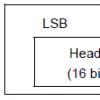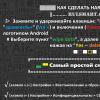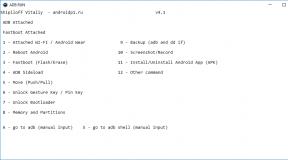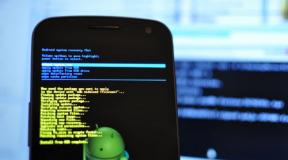Flu shots where to vaccinate. Be healthy: where and how to get the flu shot. Contraindications to vaccination
Influenza vaccination is carried out in district polyclinics, private clinics, mobile points near the metro and even in the MFC. Where and when you can get vaccinated against influenza in Moscow, read the RIAMO material.
The population is vaccinated according to the national and regional vaccination schedule. In Moscow polyclinics, vaccination against influenza and ARVI in 2017 will last until December 1. At mobile vaccination stations - until October 29.
It should be remembered that the vaccination must be done in advance, before the start of the epidemic. Doctors believe that protective levels of antibodies are produced about 21 days after vaccination.
In the district clinic
Any citizen can be vaccinated here, incl. non-working citizens and children not attending Kindergarten... You must have with you compulsory medical insurance policy... No prior registration is required.
Vaccination rooms are open from 09.00 to 20.00, on Saturday from 09.00 to 18.00, on Sunday from 09.00 to 16.00. Children are vaccinated on weekdays from 08.00 to 20.00, and on weekends from 09.00 to 15.00.
At a mobile vaccination station near the metro
Mobile vaccination stations will work on weekdays from 08:00 to 20:00, on Saturday from 09:00 to 18:00, on Sunday from 09:00 to 16:00 near 24 metro stations and two MCC stations until October 29.
The procedure is carried out by employees of Moscow hospitals and clinics. The machines are equipped with refrigerators for storing vaccines.
Only persons who have reached the age of 18 can be vaccinated here. There are no such points in the Moscow region yet, but since registration is not required, residents of the Moscow region can also get vaccinated at the Moscow metro.
You must have your passport and sign your consent to the procedure.
After vaccination, a certificate is issued stating the date, the name of the vaccine, the presence or absence of any allergic reactions... You must have this certificate on hand so that in case of allergy you know what caused it. If you are prone to severe allergies, it is better to apply for a vaccination at the clinic, as there you will be provided with first aid faster. The development of anaphylactic shock is especially dangerous, which can lead to suffocation and death.
At the MFC
This year, you can get vaccinated in 73 Moscow MFCs ("My Documents"). As in the case of the mobile point near the metro, employees of Moscow polyclinics work here, you need to have a passport with you and sign a written consent. The vaccinated person is also issued a certificate.
The list of vaccination points in the MFC can be
At the place of work / study
Staff or students must be notified in advance of vaccinations. Vaccination is carried out centrally, so no additional documents are needed, otherwise this will be reported additionally.
However, do not wait for mass vaccinations at work or at school. It is better to go to the clinic or one of the mobile points on your own - after all, the earlier you get vaccinated, the better.
In case of unwillingness to vaccinate, you can always write a written refusal, since according to the Constitution Russian Federation no one can force you or your child to get vaccinated.
In a private clinic
A private clinic must be licensed to provide vaccinations. As in the case of the state clinic, a doctor will examine the person before the vaccination. The cost of the vaccination itself varies between 1000-1500 rubles, depending on the type of drug chosen (it can be imported or domestic). Imported vaccines are considered less allergenic. You need to take your passport with you, and if you decide to vaccinate your child - a birth certificate.
WHO reports that in the 2018-2019 season. mainly influenza B is expected, as well as influenza A - H3N2 and H1N1. The first three viral strains are recommended by WHO for inclusion in trivalent influenza vaccines. It is from the strains of these three types of influenza that we will be vaccinated during the 2018-1019 influenza season. And free vaccinations are given in clinics, schools, and even at metro stations in the capital.
The vaccination campaign in Moscow traditionally begins in September. There are several ways to get vaccinated:
1. In any clinic after contacting a therapist or doctor on duty. Free vaccinations in polyclinics will last until December 2018.
2. Mobile points that operated at 24 metro stations last year. It is expected that this year the experience with mobile vaccination stations will be repeated.
3. In the MFC in your area. We will let you know from what date it will be possible to vaccinate at the MFC.
4. You can buy the vaccine at the pharmacy yourself. You will be vaccinated at the clinic for free.
From August 20 to October 28, 2018, you can get a free flu shot for the 2018-2019 season in Moscow.
What you need to get a flu shot
- Citizenship of the Russian Federation
- The passport
- Written consent (can be written on the spot)
Citizens over 18 years of age will be able to vaccinate at mobile vaccination stations. Children and adolescents under the age of 18 are vaccinated only in the clinic.
Before vaccination, you will be examined by a general practitioner or infectious disease specialist, who will measure your temperature and determine possible contraindications to the procedure.
Where and when you can get a flu shot in Moscow
Mobile vaccination stations near the metro, the Moscow Central Circle and railway stations
Working hours:
Monday - Friday from 8-00 to 20-00
Saturday from 9-00 to 18-00
Sunday from 9-00 to 16-00
List of stations:
Can I get the flu after getting vaccinated?
All influenza vaccines, domestic and imported, contain influenza A (N1H1), A (N3N2) and Type B antigens. Thus, vaccines protect against almost all influenza viruses.
In 2016–2017, only three of the vaccinated Muscovites had the flu in mild form... Only the unvaccinated had severe cases of the course of the disease and complications.
Is vaccination safe?
Inactivated vaccines. This means that they include specially processed, killed and purified parts of influenza viruses, so they are safe. After vaccination, local reactions may appear, such as mild swelling at the injection site, redness, slight itching or soreness.
What are the contraindications for vaccinations?
Contraindications to vaccination are absolute and temporary. The former include allergy to chicken protein or other vaccines, as well as previously pronounced post-vaccination reactions (temperature above 40 degrees, edema at the injection site, hyperemia over eight centimeters in diameter) or post-vaccination complications (collapse, non-ferrile convulsions, anaphylaxis).
Temporary contraindications for vaccination are:
Acute febrile conditions, acute infectious and non-infectious diseases. Vaccinations are usually given two to four weeks after recovery;
Chronic diseases in the acute stage. Vaccinations are given during remission after consultation with the attending physician.
Influenza vaccines for the 2018-2019 season
Since the influenza condition is accompanied by complications, there is an urgent need to use anti-influenza vaccinations in practice. It is possible to decide on such a procedure only on a voluntary basis. V modern pharmacology developed the following import and domestic vaccines from flu:
- Grippol. The transparent solution represents intramuscular and subcutaneous injection with / without preservative. A high dose of the drug is injected for adults deep into the deltoid muscle, for children younger age- v outdoor area thighs in front. Dose up to 3 years - 0.25 ml twice with an interval of 4 weeks, from 3 years - 0.5 ml once. An analogue is the drug Grippol Plus.
- Influvac. It is introduced in the same way in the autumn-winter period with strict adherence to the recommended dose of the vaccine. In Moscow, the drug costs from 285 rubles and is available to everyone. Influvac is vaccinated once: children under 3 years old - 0.25 ml, patients from 3 years old - 0.5 ml. If children are not vaccinated, it is possible that the solution is administered twice.
- Sovigripp. This flu vaccine 2018-2019 is developed with a new h1n1 strain - from a variant of the characteristic ailment called Michigan. The vaccine is injected intramuscularly into the shoulder; it is allowed for patients over 18 years of age. After vaccination, it is important for the first time to beware of hypothermia of the body, contact with patients with acute respiratory viral infections and acute respiratory infections.
With the onset of autumn and the first cold weather, the risk of getting sick with the flu or other colds... For prevention, doctors recommend getting vaccinated against viral infections. It is held annually free of charge in every region. The flu shot is a simple procedure to increase your permanent resistance to disease. It is carried out strictly according to a special schedule prepared by the Ministry of Health. The vaccine medication can be selected at will. In this case, you must pay the cost of the vaccine.
Annual vaccination is an important and necessary stage in the systemic fight against the influenza epidemic. A specific program is developed for each season. It takes into account the activity of strains in previous years and the emergence of new versions of the causative agent of the disease. Therefore, the calendar for 2018 - 2019 and the recommended drugs may differ slightly from those used previously. Check out the updated version of the vaccination schedule developed by the Ministry of Health for residents of Russia for the coming autumn-winter period.
Forecasts for 2018-2019
According to forecasts of doctors from the World Health Organization, the following strains of influenza are expected this fall and winter:
- Brisbane. The virus belongs to group B. It has a short incubation period - 2-4 days, then the temperature in humans rises sharply from 38 to 40 ° C. The disease is characterized by severe headache, runny nose and muscle aches. With timely and correct treatment the spread of infection stops at 5-6 days.
- Hong Kong. The strain belongs to the group of viruses A. It can be transmitted from birds and animals. In a short time, it is capable of hitting a large territory. The incubation period is 1-2 days. Doctors are not always able to immediately identify this strain, since it is able to disguise itself as other viruses.
- Michigan. Most dangerous species influenza belonging to group A. It constantly mutates and to prevent it, specialists develop new vaccines every year. In addition, the disease is characterized by serious complications. The incubation period lasts from 1 to 3 days. The first flu symptoms may appear several hours after infection. A person will want to sleep, feel tired and overwhelmed, the temperature will rise to 38.5-40 ° C.
The following categories of persons are at risk of contracting influenza:
- children under 3 years old;
- aged people;
- pregnant women;
- people with various chronic diseases.
Pros and cons
The 2019 flu shot is completely voluntary. Its supporters are those who trust the statistics and recommendations of doctors in this matter. Observations show that vaccinated people rarely get sick, and if this happens, the disease is transferred much easier and without complications.
Opponents talk mainly about two reasons for their reluctance:
- the vaccine does not protect against everyone, especially against new strains;
- are afraid of complications from the procedure itself.
Indeed, one can hardly demand that the available drugs protect against a pathogen that has not yet appeared. But the vaccinations made are not in vain - they activate the protective functions of the body, make it more resistant to the influence of the virus. As for complications, you should always understand the causes and timing of their occurrence. It takes time for the appearance of persistent immunity, therefore, during this period there is a risk of infection. That is why it is better to adhere to the calendar developed by doctors. There is also a risk of complications in the following cases:
- individual intolerance to the components of the selected drug;
- allergy tendencies;
- the presence of general contraindications: the appearance of acute or chronic diseases in an exacerbation stage, a recent viral infection.
Why get vaccinated?
The influenza vaccine not only protects the body from developing the disease, but also reduces the risk of complications. Vaccination is considered the safest and easiest way to fight the annual flu epidemic. The active substance, which is part of the preparations, paralyzes the pathogenic cell, then destroys its membrane, preventing reproduction.
Important! If a person's immunity is not weakened, then the vaccination will not harm health and will help to cope with the next epidemic.
Vaccinations are voluntary. Before vaccination, you should consult with a therapist and, if necessary, take allergy tests for a certain type of drug in order to minimize the risk of complications.
Types of drugs
Classification
There are several options for classifying recommended and tested drugs. By composition:
- live vaccines;
- split inactivated;
- whole virion inactivated.
By the effect on strains:
- trivalent - protect against three types of virus (two A and one B);
- tetravalent - respectively protect against two types A and two B.
Since 2018, the first Russian-made quadrivalent vaccine will appear on the market. This will expand the list of recommended preventive measures and help protect people from more strains at the same time.
Side effects
Occasionally, after vaccination, the following may occur side effects:
- soreness at the injection site for 2 days;
- slight redness of the injection site;
- increased body temperature;
- joint and muscle pain;
- general malaise;
- drowsiness;
- headache;
- enlarged lymph nodes;
- vomit;
- diarrhea;
- Quincke's edema;
- hives;
- anaphylactic shock;
- sharp drop blood pressure.
Contraindications
Vaccination against influenza is strictly prohibited in such cases:
- hypersensitivity to the components of the drug;
- exacerbation of chronic diseases;
- bronchial asthma;
- anemia;
- severe blood pathologies;
- work disruptions endocrine system;
- age up to 6 months;
- heavy renal failure;
- oncological diseases;
- I trimester of pregnancy.
If a person had previously been vaccinated and suffered it poorly, then re-introduction vaccines are contraindicated for him.
The calendar
The flu vaccine in 2018 - 2019 can be done during the so-called vaccination period. This time is from September 4 to October 29 of the current 2018. This schedule was not chosen by chance. As practice and data analysis show in recent years, the peak incidence occurs in winter, especially in January and February. In order to achieve stable immunity and eliminate the risk of diseases, the time was specially chosen in early autumn. It is considered the most favorable and provides protection for the entire period of the winter activity of the influenza virus.
The schedule of the procedure and the dosage depends on the age:
- children from six months to a year old may not be vaccinated if the child is on breastfeeding, antibodies with mother's milk will enter the body;
- from six months to 5 years, two reduced doses are used, which are administered at an interval of at least a month (the minimum break is 4 weeks);
- from the age of 5 to 65 years, a single vaccination with a standard dose is offered;
- for older people, a one-time administration of an increased dose is recommended.
For a vaccination campaign to be successful and effective, a list of funds is usually drawn up taking into account the activity of certain strains in previous years. Recommended influenza vaccines for the 2018-2019 season:
- Sovigripp: a new agent that includes a new strain known as Michigan. Has special age restrictions: from 18 years old, injected intramuscularly;
- Influvac: it is allowed to use for young children in a dose of 0.25 milliliters (for the first use - two doses according to the standard scheme with a break), adult dosage – 0,5;
- Grippol: available with or without preservatives. 0.5 ml of serum is injected (for children - in two doses according to the half-dose scheme). There is also an analogue of the drug on the market - Grippol Plus, which can be used.
Where can I get a flu shot in Moscow and St. Petersburg?
From August 20 to October 28, the flu vaccine in Moscow will be given at metro stations, in city hospitals and in shopping centers. In total, about 500 vaccination points have been opened. Vaccination points are open in the following shopping centers:
- Kaluga;
- Columbus;
- Oceania;
- Rumyantsevo;
- Pike.
In St. Petersburg, vaccinations can be given at city clinics, at metro stations, and at mobile outpatient clinics near large shopping centers.
The Moscow City Health Department is launching a large-scale influenza vaccination campaign, within the framework of which all residents of the capital will be able to get a modern influenza vaccine free of charge.
From August 20 to October 28, more than 500 vaccination points will operate in Moscow, where any Muscovite will be able to get a flu shot free of charge. In addition to all city polyclinics, vaccination points will be located near metro stations, MCC and railway stations, in the centers of public services "My Documents" and, for the first time, in shopping centers of the capital.
Influenza and acute respiratory viral infections(ARVI) are the most common in the world infectious diseases... But if most ARVIs are relatively easy, then the flu can lead to extremely dangerous complications. The most effective way protection against influenza and its complications is vaccination, which protects 80-90% of children and adults from the disease, and the resulting immunity lasts for a year.
“For the convenience of residents, we have been conducting a large-scale influenza vaccination campaign in the capital for the third year in a row. This year, in addition to the already familiar mobile vaccination points at metro stations, the Moscow Central Circle and in the centers of public services "My Documents", for the first time, it will be possible to vaccinate against influenza in some shopping centers in the capital. This opportunity was supported by the majority of Muscovites in voting on the portal "Active Citizen", - said the head of the Moscow Department of Health Alexei Khripun.



















